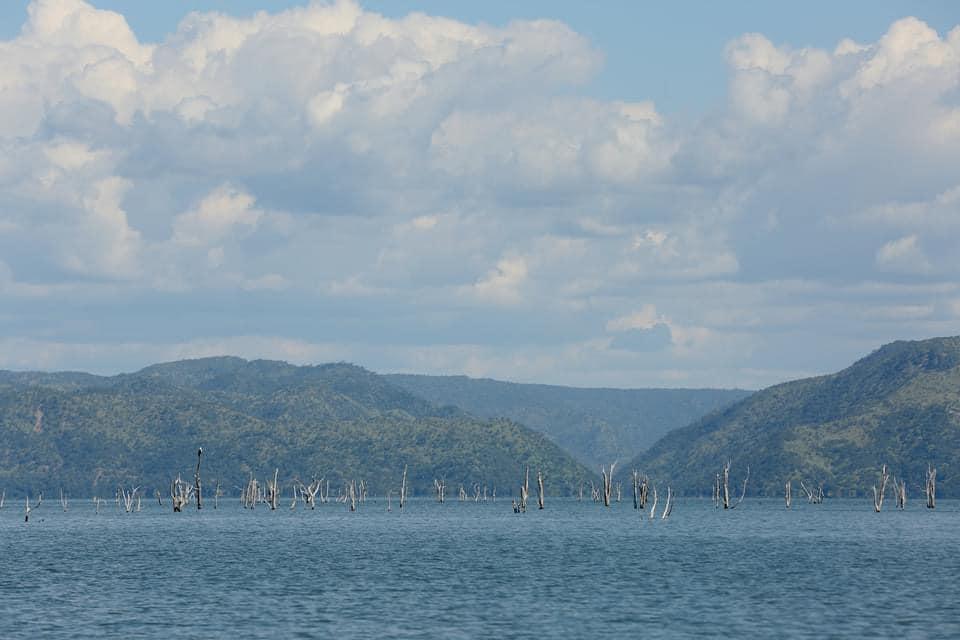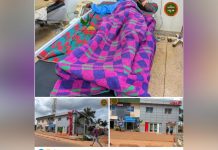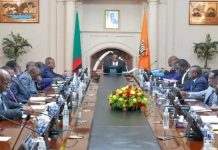
Africa-Press – Zambia. The Load-shedding in Zambia is caused by poor management and planning, not drought or weather conditions, says Amb. Emmanuel Mwamba According to Mr. Emmanuel Mwamba, the current load-shedding being experienced in Zambia is not due to drought or weather conditions. “We should be very clear,” Mr. Mwamba stated. “The current load-shedding is just an economic decision and management issue and has nothing to do with the current weather pattern or drought.”
Mr. Mwamba explained that the water levels in Kariba Lake are known in advance and used to determine the amount of water usage allocated to each power station by the Zambia River Authority (ZRA). Maintenance schedules for independent power producers, like the Maamba Collieries Power Station, are also submitted in advance and planned for by ZESCO. “This load-shedding has nothing to do with drought or weather factors,” Mr. Mwamba emphasized. “Zambia last experienced drought in 2015, 2017 and 2019. 2021 and 2022 have not been affected by any drought. We had bumper crops across the country during the same period and seasonal rainfall was above normal. The weather focus for 2023 remains that Zambia will not experience drought.”
Instead, Mr. Mwamba attributes the load-shedding to poor management and planning. He cites the Energy Regulation Board’s approval of the export of excess power, totaling 1,100 megawatts, to Namibia, Zimbabwe, and Botswana in December 2022 as evidence of this. “We must be very clear again that Kariba Dam is no longer a big factor as the country is producing sufficient power from other power stations,” Mr. Mwamba said. “Zambia’s peak demand is 2,300 megawatts. Installed capacity is 3,456 megawatts. Power exports is over 440 to 1,100 megawatts.”
Mr. Mwamba believes that the current water levels in Kariba were caused by the decision to upgrade machines at the Kariba North Bank and Kariba North Extension, despite the allocated water levels being set to meet urgent power exports. “This is a poor planning activity,” he said. Mr. Mwamba also expressed disappointment in the newly constituted taskforce that was formed to address energy inefficiency, stating, “You mean they spent the whole weekend planning and visiting power stations only to come up with a puzzle whether 6+6 is equal to 12 or 6!”
Mr. Mwamba concluded by stating that the current load-shedding is a result of poor management and an insatiable appetite to raise money, even at the expense of citizens’ welfare. He called for an end to load-shedding and power exports in Zambia, saying, “Stop load-shedding. Stop exports. Zambia has enough power.”
Meanwhile,Mr Mwamba has refuted what he called claims by President Hakainde Hichilema that there are leakages on the Kariba Dam. Posting on his Facebook page, Mr Mwamba wrote:
“I have just heard President Hakainde Hichilema live on TV allege they are leakages on Kariba Dam. That’s a total lie. There are no leakages on Kariba Dam Wall. The concerns around the integrity of the dam was attributed to the corrosion at the plunge pool (outside the dam) as correctly pointed out by the Minister of Green Energy and Environment, Hon. Collins Nzovu during his earlier brief and does not affect the dam or power generation.”
Mr Mwamba went on to highlight that the Kariba North Bank Power Station is still producing power from 1,080 megawatts to 440 megawatts, dispelling concerns about the dam’s impact on power generation. In order to address the issues with the plunge pool and ensure the long-term integrity of the Kariba Dam, Zambia has obtained $294 million in funding to rehabilitate the pool and modernize the spillway gates. The funding will be used for institutional and project management, plunge pool reshaping, and spillway refurbishment. The contractor has already completed construction on a downstream cofferdam to manage spillage during the rehabilitation works on the plunge pool.
Mr Mwamba emphasized that, while low water levels in Kariba Lake have been cited as a reason for load-shedding, Kariba is not the only source of power generation in Zambia and only provides a third of the country’s capacity. He called for an end to power exports and load-shedding, arguing that Zambia has enough power for domestic use.
Overall, it is reassuring to know that the Kariba Dam is not experiencing any structural issues or leakages, and that the concerns about its integrity are related to the corrosion of the plunge pool, which is being addressed through a comprehensive rehabilitation and modernization project. With the proper funding and management in place, the dam will continue to provide reliable power generation for the country.
For More News And Analysis About Zambia Follow Africa-Press






